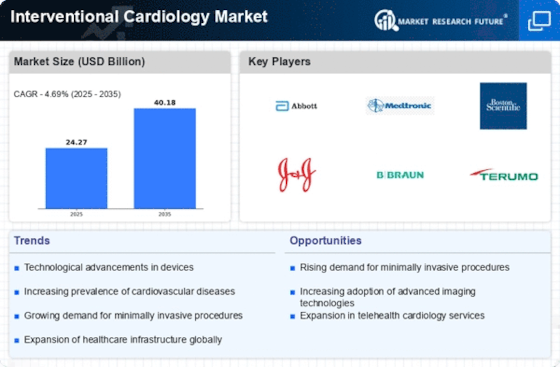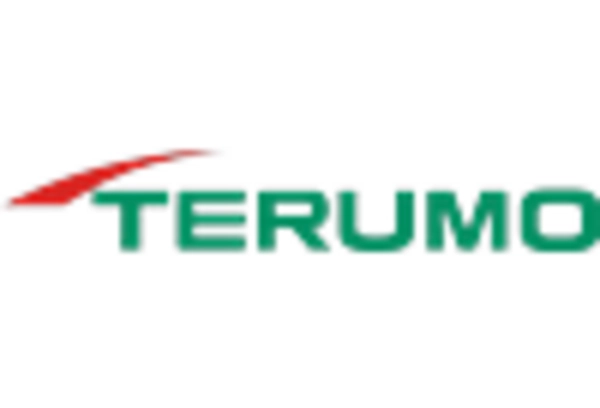Market Share
Interventional Cardiology Market Share Analysis
The interventional cardiology market must be thoroughly studied to identify main players, technological developments, and changing client demands. Knowing the market segments like arterial, structural cardiac, and peripheral treatments enables you tailor programs to individual requirements.
In invasive cardiology, new and better technology are key to differentiation. Robotic-assisted therapies, bioresorbable stents, and novel imaging technologies may help a firm lead cardiovascular care innovation.
Working closely with healthcare institutes and participating in research projects is crucial. Partnerships with top medical facilities, joint research initiatives, and new studies boost market reputation and stimulate cutting-edge interventional cardiology solutions. Because patients have several illnesses, offering tailored gadgets is prudent. Devices that accommodate diverse heart shapes, sizes, or diseases are more attractive to a larger audience and satisfy patient and healthcare professional demands. To expand the worldwide market, you must understand healthcare and its regulations. Obtaining approvals, customizing interventional cardiology products for various countries, and establishing a worldwide presence assist enter the market. Funding medical education groups is crucial. Healthcare workers may keep current on interventional cardiology techniques via lectures, symposiums, and other continuing medical education, which might impact their readiness to utilize them and their commitment to the practice. Building solid connections with hospitals, cardiac centers, and other health care personnel is crucial. Working jointly may boost invasive cardiology therapy adoption and a company's market position. Patient awareness campaigns are clever market positioning. Knowing about interventional cardiac procedures, their advantages, and success stories helps patients make better choices and demand more sophisticated treatments. Cost-effective pricing methods are crucial in markets where price influences purchase decisions. By providing inexpensive pricing, blended packages, or financing options, interventional therapies should reach more patients. Dealing with data privacy and regulations is crucial. Protection of patient data, compliance with healthcare regulations, and certifications promote confidence between healthcare personnel and patients. Combining invasive cardiac care with video makes sense as telemedicine grows. Remote chats, pre-procedure checks, and post-surgery follow-ups make expert cardiac care simpler to get, particularly for patients in hard-to-reach places. Always strive to improve quality. Continuously developing goods and processes and meeting the highest quality standards ensures patient satisfaction, brand trust, and word-of-mouth marketing. Participating in health checks and community service activities builds community connections. More individuals learn about and obtain preventative cardiac care via free or low-cost testing, training sessions, and health fairs. Sustainable management and manufacturing may boost a company's image at a time when business obligation is more vital. Modern values include utilizing less energy to create items and eco-friendly packaging. New somewhat invasive approaches should be prioritized. Reducing treatment invasiveness, healing periods, and patient discomfort enhances clinical outcomes and makes a firm a leader in patient-centered interventional cardiac solutions.


















Leave a Comment